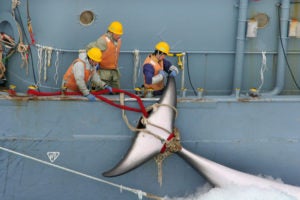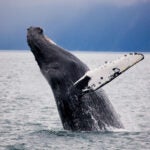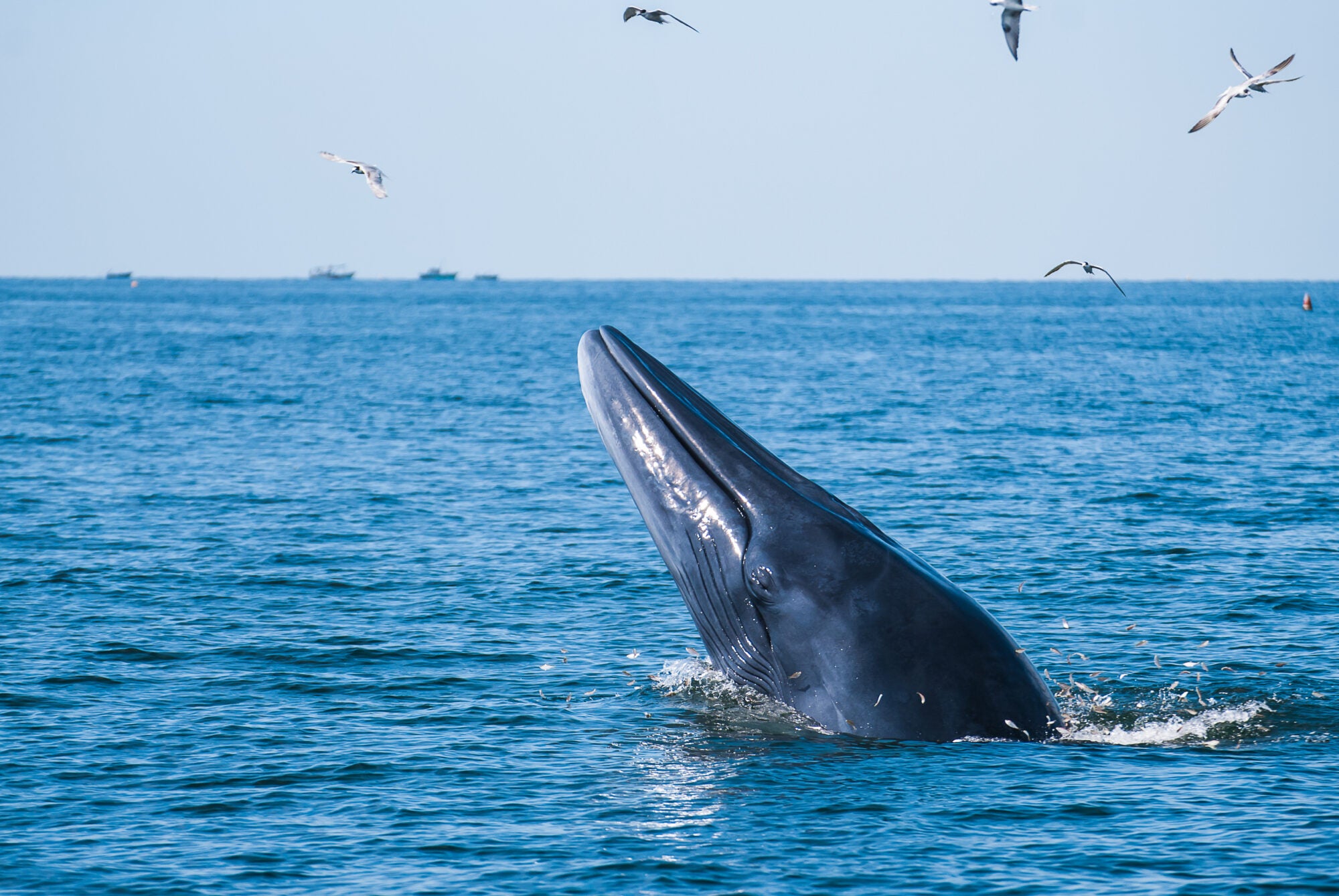
BRUSSELS―As news breaks that Iceland has cancelled this season’s commercial whaling on animal welfare grounds, global animal protection charity Humane Society International says it is thrilled and relieved at the announcement that will spare hundreds of whales from agonising deaths, and urges the Icelandic government to make it a permanent ban.
Food, Agriculture and Fisheries Minister, Svandís Svavarsdóttir, announced that Iceland’s whaling vessels will not kill any whales this season due to the conclusion that “the fishing method used when hunting large whales does not comply with the law on animal welfare.”The suspension lasts until August 31st which effectively cancels this season’s whale killing. The minister’s statement continues “it is necessary to postpone the start of the whaling season so that there is room to investigate whether it is possible to ensure that the hunting is carried out in accordance with the provisions of the Animal Welfare Act.”
Ruud Tombrock, HSI/Europe’s executive director, said: “This is a major milestone in compassionate whale conservation. Humane Society International is thrilled at this news and praises Minister Svavarsdóttir for ending the senseless whale killing which will spare hundreds of minke and imperilled fin whales from agonising and protracted deaths. There is no humane way to kill a whale at sea, and so we urge the minister to make this a permanent ban. Whales already face so many serious threats in the oceans from pollution, climate change, entanglement in fish nets and ship strikes, that ending cruel commercial whaling is the only ethical conclusion.”
The announcement follows the Minister’s op-ed last year in which she said she saw little reason to permit whaling after 2023, and publication last month of an independent report by the Icelandic Food and Veterinary Authority―commissioned by the Minister―that revealed some whales killed in Icelandic hunts had taken up to two hours to die, with 41% of whales suffering immensely before dying for an average of 11.5 minutes.
Kitty Block, CEO of Humane Society International, said: “For those of us who have been campaigning for many years to end commercial whaling, to see the day that Iceland decides to stop killing whales and retire its harpoons for good, is truly historic. Economic factors have certainly played a significant role in the demise of this cruel industry -with little demand for whale meat at home and exports to the Japanese market dwindling- but it is the overriding moral argument against whaling that has sealed its fate. Harpooning these magnificent giants not only causes unjustifiable suffering to those whales who are killed, but also unimaginable distress to the rest of their pod who witness their family members being chased and slaughtered. Iceland is already one of the best places in the world to go whale watching, and the country stands to attract even more ecotourists now that it has abandoned whaling forever. The world now looks at Japan and Norway as the only two countries in the world to still mercilessly kill whales for profit.”
Fast facts:
- The International Whaling Commission agreed to enact a global moratorium on all commercial whaling in 1986.
- Iceland left the IWC in 1992 but returned in 2002 with an exception to the moratorium, despite objections from multiple nations. Since re-joining the IWC, Iceland had killed more than 1,500 whales, including fin whales.
- Iceland suspended hunting fin whales in 2016 due to a declining market for whale meat in Japan. Hunting resumed for the 2018 season when 146 fin whales were killed, including a pregnant female and a rare fin-blue hybrid whale, plus six minke whales. A single minke whale was killed from 2019-2021, and 148 fin whales in 2022.
- Fin whales are classified by the International Union for the Conservation of Nature as globally vulnerable to extinction despite decades of recovery since the commercial whaling moratorium.
ENDS
Media contact: Wendy Higgins, director of international media: whiggins@hsi.org




